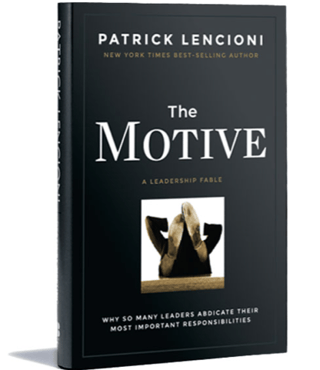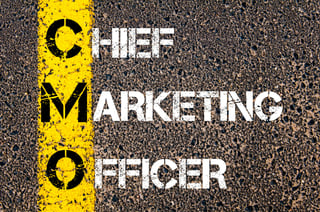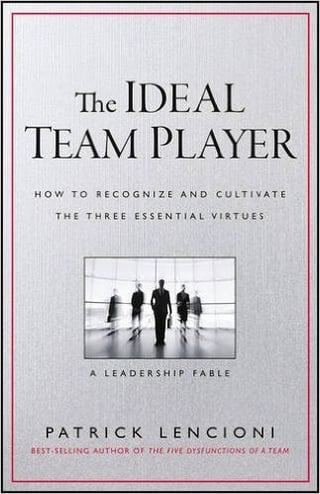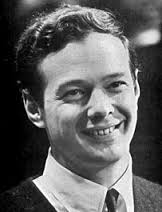Growth Insights for CEOs
Pete Hayes
/CMO-Pete-Hayes.jpg?width=320&name=CMO-Pete-Hayes.jpg)
Recent Posts

AI Strategy for Financial Services CEOs: Why “Good Enough” is no Longer Enough
AI in financial services has moved from lofty claims about AI's use to being at the center of the growth conversation, shaping how you compete, run, and stay trusted. Margins are under pressure as customers benchmark you against their best digital experiences, whether they are opening a checking account, redeeming loyalty points, disputing a card charge, or seeking hardship help.
Recent Posts

The Motive – Lencioni’s Best, With a Catch
Thu, Mar 12, 2020 — I don’t know about you, but I look forward to a new Patrick Lencioni book like I do the next Grisham novel. Not for entertainment purposes (while they are always a fun read), but from the sheer joy of reading an expression of well-crafted thinking. In Lencioni’s latest (and greatest) fable and framework – The Motive – Patrick does not disappoint. But there’s a catch. While this may be his most important work, it may become his least popular. Why? Because rather than challenge his business leadership audience with new methods, he’s challenging us with a completely new mindset; and one that many of us will instinctively fight.

What’s Driving Double-Digit Growth in SMBs?
Wed, Oct 11, 2017 — Latest Vistage Research Provides Important New Insight to Growth If you’re like most companies we’re working with, you’re experiencing growth this year. After all, the economic and business climate is quite conducive to growth – low cost of capital and a stable labor market are certainly contributing. But what about the companies that are getting more than their fair share of growth? What are they doing? Vistage Worldwide just published insightful research that explores the decisions high-growth company leaders are making that set them apart from their peers. This study of over 1,300 CEOs and business owners identifies key factors that clearly distinguish between higher (double-digit growth) and lower growth companies. Ready to see the specifics?

What Does a Fractional CMO Cost?
Wed, Oct 12, 2016 — A Growing Spectrum of Fractional CMO Service Providers Ensures a Range of Fee Levels More CEOs are hiring fractional executives to bring expertise to their management teams, but are they really affordable? And how should a CEO evaluate their value and the quality of work they deliver? These are really good questions! After all, there’s a wide range of skills, seniority and experience from marketing consultants, agencies and firms that call themselves fractional or outsourced CMOs. So, as you’d expect, there’s a wide range of price points from these sources. But to get started, let’s put these into a few oversimplified categories: “Single Shingle” Marketing Consultants “Loose Confederations” of Brokered Marketing Consultants “Professionals” who are Part of a Firm Senior management from a marketing or advertising agency Partners from an “Executives-as-a-Service” firm (such as Chief Outsiders) Partners from a large consultancy (such as McKinsey & Co, Bain)
Stay up-to-date with the latest from Chief Outsiders

What is a Fractional CMO?
Thu, Jun 30, 2016 — A Fractional CMO is a marketing executive to help with customer acquisition, sales development and company growth. Your company gets executive experience without the full-time cost. The idea of a mid-sized company hiring a fractional executive is not new. Virtual CFOs, for example – pioneered by companies like Tatum and vcfo – have been around for decades. They can bring incredible value to companies where having a full-time CFO wouldn’t make sense, either fiscally or even practically due to the typical scope of challenges needing attention. Yet, as one private equity principal once shared with me, “I know what I’m going to get with a fractional CFO. But I don’t have that same level of clarity if I hire a fractional CMO.” It’s no wonder. Marketing, as a discipline or an activity, has a wide range of definitions. For example, most of us consider “marketing” as the activities we deploy to take our products and services to market, or attract customers to our business or offerings. Or in short, marketing is largely promotional activity. Yet consider someone who gets their MBA in Marketing. A syllabus from The University of Texas (PDF) shows most of the coursework is focused on disciplines not directly related to promotion. So what gives?

News Break: Lencioni’s “The Ideal Team Player” is Bigger Than Expected
Mon, May 2, 2016 — The beauty of Patrick Lencioni’s writings has always been how well they resonate with real business experiences. I suppose that’s a direct result of the real-life “fables” he creates for his books (the exception being The Advantage) that tease out a model for excellence that he shares in the later sections. In The Ideal Team Player – How to Recognize and Cultivate the Three Essential Virtues, Pat parlays perhaps his most simple and compelling framework yet; by showing how 1) humility, 2) hunger and 3) (people) smarts are the key virtues employees need to maximize their value for their team and company.

Top 12 (Plus 1) Leadership Skills I Learned from Boy Scouts
Tue, Feb 2, 2016 — Robert Fulgrum reminded us that “All I Really Needed to Know I Learned in Kindergarten” when he published his book of the same name. We’re told that if we: Share Everything Play Fair Don’t Hit People… …along with 13 more basic principles we will surely have a successful life. Well, he didn’t exactly say that, but certainly he asserts our lives would be more peaceful and our society less caustic.

Hiring the Right Marketing Consultant: A Quick Guide
Tue, Oct 20, 2015 — Different Kind of Hiring Hiring a marketing consultant is not exactly like hiring an employee. Here’s why: A consultant should bring value more quickly to your company The problem you are trying to solve is likely finite, not on-going You should expect a consultant’s fees to be disproportionate to a salary So in a nutshell, you should be on the lookout for a firm with an individual who has the experience and track record to quickly add value, and expect this impact will come at a premium as compared to hiring an employee.

CEOs: Want More Energy? Manage These 5 Buckets
Mon, Sep 22, 2014 — The annual “fill-up” for my leadership bucket comes every August when I attend the Global Leadership Summit – an event that reaches 180,000 leaders around the world. With presentations from amazing leaders – this year including Geoffrey Immelt, Carly Fiorina, Tyler Perry, Patrick Lencioni, plus a number of faith-based CEOs and even pastors – the event covers the gamut for honing leadership skills. Bill Hybels, the man behind this 20-year happening and whose messages are always a highlight, released his new book “Simplify” coincident with the Summit. The premise of the book is this: Leaders who focus on 5 simple areas of their lives will find more clarity and activate more energy to accomplish their God-given purpose on earth. Wow.

The Beatles CMO - Change Agent
Wed, Feb 12, 2014 — In 1997, Paul McCartney said, “If anyone was a Fifth Beatle, it was Brian.” In my own reflection, manager Brian Epstein could also be called The Beatles CMO. Discovering the band in November 1961 in Liverpool after their many years in Hamburg, Germany playing mainly American rock songs, wearing their jeans and leather, Brian practically turned a miracle with his vision for their potential. Even after being rejected by virtually every record label of the day, Epstein found a way, earned more than any manager of his day (up to 25% of earnings after expenses) and helped build a legacy that seems to be without end. Foundation in Knowing the Market Brian Epstein ran a record store as part of his family’s business. He had the benefit of years of understanding the tastes of the buying public. From this purview, he watched fads ebb and flow.He also had plenty of opportunities to see bands live. He was so successful in his role as at NEMS music store, that when he finally met the Fab Four after a performance at The Cavern, it was Brian who held the most prominence. Reflecting on this meeting with The Beatles, Brian said, “I was immediately struck by their music, their beat, and their sense of humor on stage – and, even afterwards, when I met them, I was struck again by their personal charm. And it was there that, really, it all started.”
.png?width=1500&height=398&name=CO_Corporate%20Logo%202021_4C_HOR_FNL-1%20(1).png)